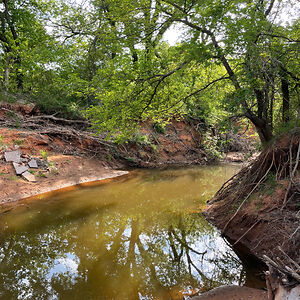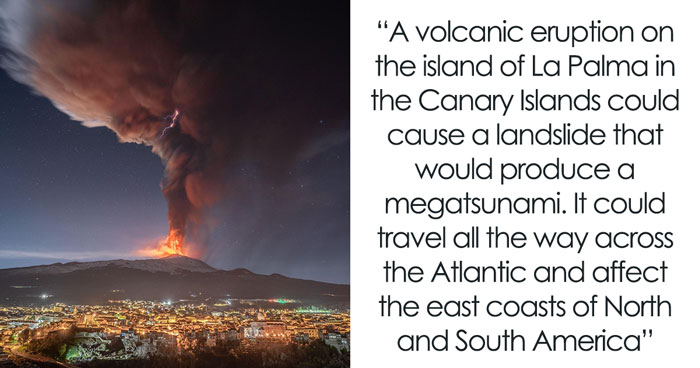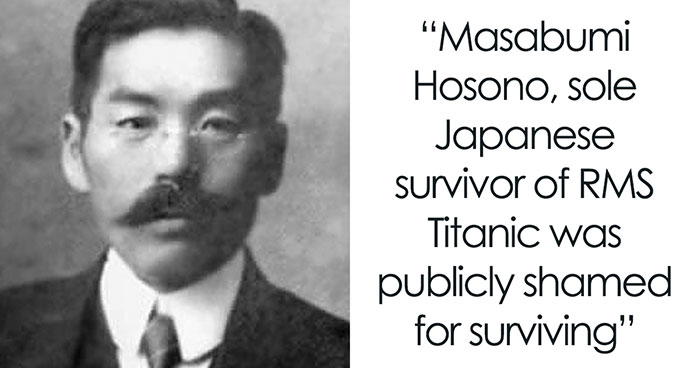Share any tips or advice you have about surviving in the wilderness.
This post may include affiliate links.
Stay indoors.
But first map out the routes between the living room, kitchen and bathroom. Set up food storages in at least two of these locations. Boil your water before you make tea, coffee or taking a bath. Let everybody know where you are and what you are doing over social media apps. During mating season pay more attention to nature's real wonders. Enjoy your time inside.
- When you're in a forest, moss can signal water sources like springs or streams. So, keep an eye out for lush, green mossy areas to find water. Also dry moss serves as excellent tinder for starting fires. - When my dad gifted me his Swiss Army knife, he emphasized its capabilities for outdoor activities like hiking and camping. So, having a versatile tool like a Swiss Army knife or a multi-tool is handy. It's great for cutting, opening cans, fixing gear, etc.
-Learn the basics before venturing out. -Keep something to start a fire on your person. -A tiny mirror can be used to give light signals to aerial rescue parties. -Let people know where you go and when you plan to be back. -Try not to stand between a mama bear and her cubs. If you do, make sure your last will & testament are up to date before getting torn to ribbons to save your loved ones a lot of legal trouble.
If you're going to the back of beyond in Australia: take 2 spare tyres, take minimum of 40 litres of water, take food for a couple of days, take something for signalling, something for making a fire, tell people where you're going & how long you're planning on being. If you're going really off-road, take a Satellite phone or epirb (emergency position-indicating radio beacon). The outback is a seriously big place, and has no mercy.
"Bear is black: fight back, bear is brown: get down, bear is white" say good night.”
My dad was in the service while I was growing up and every summer we did a lot of camping. Once each summer he would take us survivalist style. Not super hard core because we were still young but not at a camp ground. It was a really good experience to have although at times we rebelled. Having some kind of rope/cord with you. Parachute cord has multiple strands and can be extremely useful and versatile. You can use it for making a shelter, first aid, helps in starting a fire, etc. You should also, of course have some kind of cutting tool or a few different types for hunting, cutting, self defense, etc. And always, always be careful what you use for toilet paper, my brother learned the hard way.
Bring alcohol wipes and hand sanitizer. 1. First aid. 2. Useful to start a fire if needed.
Keep a jar of peanut paste / butter in your car... keeps a long time and can help save you.
Don't let the influencers, posting pics from their "Glamping Trip," fool you. #1 RULE: YOU are an intruder to the environment. The animals run the show, the weather can kill you, as well as the water if not treated properly. Storms and flood waters can take you out, even if you have a view of town. Injuries in the field are way different than in the safety of your home. A simple wound can become quickly infected. Doesn't matter if you are 30 minutes from civilization. *Been camping/hunting regularly for 15 years*
This isn't a traditional survival tip, but you should bring a battery pack and your phone for calling emergency services or using gps. Also WD-40. Never underestimate WD-40.
The forest service/rangers/signs know better than you. The vast majority of disasters can be avoided by reading/listening and staying on the trail. Always carry a knife, a first aid kit, more water/food than you think you need, and an extra layer of clothing.
Plantain leaves are good for bug bites and skin irritation chicory is easy to find, and edible, along with dandelions. do not eat any mushrooms, don't eat dead animals, sassafras leaves are edible.
Don't let your soft can-opener drag you outside when you have a perfectly good house to sit in.
Look up. Is there someplace high you could reach for a better vantage point? Is there something that could fall on your shelter? Where is the sun? Which direction is it traveling? Where is the North Star? Is there any regular aviation?
I looked up. I identified lots of much better vantage points. Nothing falls on me. The Sun travels from East to West. The North Star is approximately over the North Pole. I memorized the pattern of commercial planes flying over. Now, how do I get somebody to pull me out of this hole I fell while looking up?
If you are in a vehicle and it becomes not drivable for any reason stay with the vehicle.
It is easier for search and rescue to find your vehicle than it is to find you. If you do have to leave your vehicle, leave a note detailing when you left and which direction you went.
LOL!! Be VERY wary of "useful survival tips!" There's hardly a one I've run into that hasn't blown up for someone trying to use it - in ALMOST the right place! Physics ! is your best friend! Remember Steve Irwin - who knew it all - until it killed him! I have camped out in minus 30°F - enjoyably and successfully, since I'm writing this - how? I did my homework. :-)
If lost, your best bet is to stay put. However if that's not an option due to danger or weather, prioritize shelter/fire first, then water, then food. You can (on average) go up to three weeks without food, thee days without water, but you can die from exposure in as little as 30 minutes.
Prioritize water first. If you take the time and energy to build/find a shelter and to build a fire in a place with no water available, you are going to have to move very soon. no exceptions. You can survive without a shelter or a fire. You cannot survive without water.
Follow water downstream as it often leads to settlements or at least used water catchments. Likely someone nearby and it can keep you guided a bit better.
Be careful if you suddenly stumble on a clear spring in the middle of the woods. If its clear, there's a fair chance its poisoned. The clearness may be a result of all the life inside being killed by said poison.
Insects may not taste good, but most of them are high in protein and are not toxic, unlike many plants.
If you hear a foreign sound, do not investigate. Especially at night. Stay in your tent or shelter.
Good Outdoor Survival Tip? Stay under the canopy as you go from the restaurant to your car. That is the only time I'm outdoors.
Use hand sanitizer to Start embers! Hand sanitizers may look like they’re only useful for cleaning your hands, but they’re also good for starting fires. This is because they contain alcohol, which is flammable. Simply use some of the stuff on a char cloth or some leaves or other tinder and they’ll easily catch fire from a spark. Always keep a small bottle in your pocket. Or watch Outdoor Boys.
1) keep a small, BB-sized stone handy so that when you are hiking you can put it in your mouth - it keeps saliva flowing, preventing dry-mouth 2) Always take at least one flashlight with you - it can get really dark out there 3) The sun sets 1 hour earlier on the east side of mountains (you are in its shadow) 4) Walk down hill and down stream in forested areas - also, trees have the most foliage/branches on the sunny/south side (compare results with moss on north side
If you are caught in dry country and can't find water, avoid urinating, as best you can. Your body has a recycle system that helps you stay hydrated.
Protect yourself from mosquitoes and ticks anyway you possibly can. Mosquitoes are most active in the early morning and evenings. In the deep woods they can swarm you. Citronella and bug spray is cute when you're chilling in the city. When you're in the woods with hungry blood suckers do what the animals do. Take a mud bath. Cake yourself. You only need a single mosquito straw to stick you once to catch Zika virus, West Nile virus, Chikungunya virus, dengue, Tularemia and malaria. A tick can carry Lyme disease, Rocky Mountain spotted fever, Tularemia, Ehrlichiosis, Relapsing fever, Colorado tick fever, Babesiosis. You can also get Tularemia from Horseflies. Wear protective mesh clothing. Keep your pants tucked into your shoes. Do not set up camp near standing water. Don't leave out food, drinks and water. Avoid sweetening your sweat and blood by going sans alcohol and not exercising during peak mosquito times. Keep your tents closed. Use a DEET based repellent. Use a bug repellent lamp instead of your standard flashlight and lamps. Build a good campfire. Permethrin can be used to repel all sorts of insects, including ticks. Avoid tall grass. Sage, mint and lavender is also good at keeping tick away. Vinegar and mint is good for repelling horseflies.
if ur in the north american woods/ forests, try n look for a bigfoot/ sasquatch or smthn thwy usually can help u out
This isn't really for survival, but if you're camping leave no trace, like trash.
(1) Magnetic compass and map, 5-10m of paracord, swiss army (or similar), flint and steel, marking pencil or crayon to write on trees or rocks, metal walking stick. (2) Disposable plastic raincoat OR large garbage bag. Getting wet causes hypothermia, even in summer. And both a fleece top for warmth and a reversible foil blanket. (3) A whistle. You can yell for 30 minutes before losing your voice, or blow a whistle all day and be heard further. (4) Put your first aid in a snap top plastic container, NOT a zipped bag. You can't open a zipper with one arm broken. (5) Steel cup and wire to hang it over a fire, it's smaller than a pan. (6) Food that is light and will keep, only needing water: trail mix, crackers, jerky, dried fruit, packet soup, teabags or coffeebags, instant powder drinks. (7) Carry supplies for three days longer than you plan to be there. Stuff happens.
Ask your local Search and Rescue organization to conduct Hug-A-Tree-And-Survive classes at your elementary schools, daycares, libraries, everywhere. Learn to stay put. Learn how to be seen. Learn how to survive. The best 2 things to carry? A Large plastic garbage sack to be used as shelter or clothing. A whistle. The sound carries further and you can still blow when your voice has given out. As an experienced Search and Rescue K9 handler, I'll also add to not hang out near running water. It drowns out the sounds of the searchers.
This isn't really for survival, but if you're camping leave no trace, like trash.
(1) Magnetic compass and map, 5-10m of paracord, swiss army (or similar), flint and steel, marking pencil or crayon to write on trees or rocks, metal walking stick. (2) Disposable plastic raincoat OR large garbage bag. Getting wet causes hypothermia, even in summer. And both a fleece top for warmth and a reversible foil blanket. (3) A whistle. You can yell for 30 minutes before losing your voice, or blow a whistle all day and be heard further. (4) Put your first aid in a snap top plastic container, NOT a zipped bag. You can't open a zipper with one arm broken. (5) Steel cup and wire to hang it over a fire, it's smaller than a pan. (6) Food that is light and will keep, only needing water: trail mix, crackers, jerky, dried fruit, packet soup, teabags or coffeebags, instant powder drinks. (7) Carry supplies for three days longer than you plan to be there. Stuff happens.
Ask your local Search and Rescue organization to conduct Hug-A-Tree-And-Survive classes at your elementary schools, daycares, libraries, everywhere. Learn to stay put. Learn how to be seen. Learn how to survive. The best 2 things to carry? A Large plastic garbage sack to be used as shelter or clothing. A whistle. The sound carries further and you can still blow when your voice has given out. As an experienced Search and Rescue K9 handler, I'll also add to not hang out near running water. It drowns out the sounds of the searchers.

 Dark Mode
Dark Mode 

 No fees, cancel anytime
No fees, cancel anytime 


























































